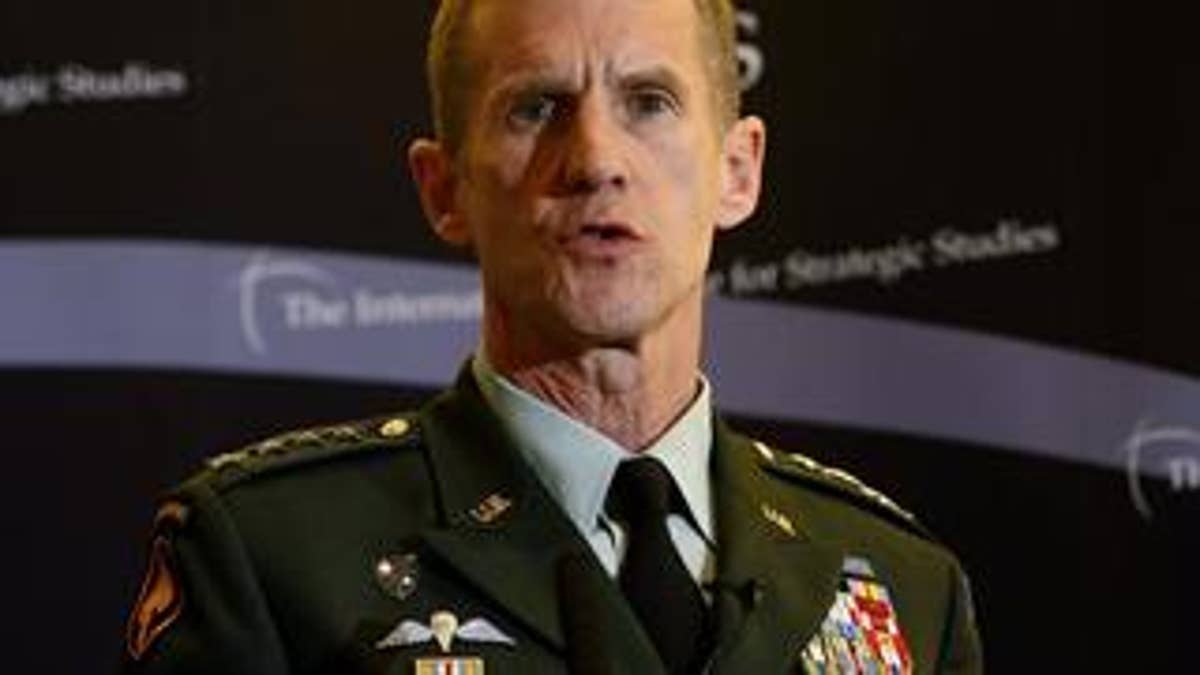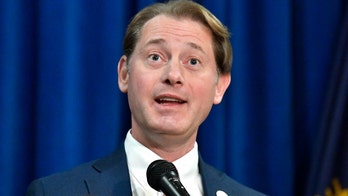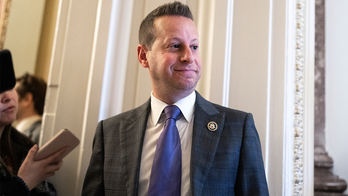
Gen. Stanley McChrystal was supposed to be President Obama's ace in the hole in Afghanistan, the man who would steer allied troops in a new direction in the war-torn country. Defense Secretary Robert Gates praised McChrystal's "tremendous" skills and the "fresh thinking" that he'd bring to the job when he was put in charge of U.S. and NATO forces in May.
But only five months later, McChrystal's star seems to have dimmed, diminishing his role from Obama's counterinsurgency czar to just one among a sea of faces advising the president on war policy.
Until Wednesday, McChrystal had spoken with Obama only once since he took command in June. Now he and other top military commanders are struggling to convince other members of Obama's national security team that McChrystal's recommendation for a troop increase should be approved.
The conflict has some critics voicing concerns that Obama is sitting on the guidance of the man who should be his top expert in the field.
"I feel very strongly that clearly if a commander is selected with the glowing marks that Gen. McChrystal received, he was the guy selected based on every understanding that he was the best-suited, best-qualified and someone who could clearly get the job done," said U.S. Army Lt. Col. Anthony Shaffer, a former Army intelligence officer who served under McChrystal and is now the director of external communications with the Center for Advanced Defense Studies. He is still in the Army Reserves.
"I believe the president is obligated to support his commander. ... He selected him, he's the man."
Shaffer said the root of the change in tone is doubt about the strategy itself.
McChrystal was brought in to replace Gen. David McKiernan and to lead a strong counterinsurgency strategy. "We couldn't pick two better officers," Joint Chiefs of Staff Chairman Adm. Mike Mullen said in May, referring to McChrystal and his recommended deputy, David Rodriguez.
Now officials like Vice President Joe Biden are pushing for a different approach in Afghanistan that de-emphasizes troop strength in favor of precise strikes on Al Qaeda, particularly with the use of unmanned drones in Pakistan.
"The White House is between a rock and a hard place," Shaffer said. "The policy's not there."
So if the strategy changes again, does the commander change with it?
That's to be determined, Shaffer said. But he argued that Obama should approve the troop request and stop the bleeding in Afghanistan, and review the strategy later -- the opposite of what the White House is doing.
Sen. John McCain, R-Ariz., who's grown so frustrated that he tried to call McChrystal to testify before Congress, said he's "puzzled" at the amount of time it's taking to deal with McChrystal's resource request.
"I sympathize somewhat with the president because the left of his party does not want additional troops, a surge in Afghanistan," McCain said Wednesday. "But the fact is that the president during the campaign and as short a time ago as last March said this was a war of necessity, and one that we cannot afford to lose. We need to have the number of troops that have been recommended ... and that's 30,000 to 40,000 additional troops."
McCain's effort to bring McChrystal before the Senate failed Thursday on a 59-40 vote.
Sen. Joe Lieberman, I-Conn., echoed McCain on Thursday, telling FOX News that Obama should approve McChrystal's request for more troops.
White House Press Secretary Robert Gibbs said the president still believes Afghanistan is a war of necessity, and he accused critics who claim the administration is jeopardizing the troops of "game playing." He said the president is obligated to decide on a firm policy before weighing in on whether to send thousands more troops into the battlefield.
"The men and women that might be sent to Afghanistan to serve and protect our freedom deserve that, as do their families and every other American," Gibbs said.
McChrystal told FOX News, during an event Thursday in London, that the policy debate is "incredibly important and incredibly healthy." He spoke following a strategy session Wednesday with Obama and the rest of the national security team.
"The president led that very effectively and ... so we can come to a clear decision and then move forward," he said. "I think we'll be in a much stronger position."
Sen. Evan Bayh, D-Ind., said too much attention is being paid to "form over substance" -- in other words, the number of times Obama has spoken with McChrystal.
"(McChrystal's) voice is going to be prominent in the decision about what to do going forward in Afghanistan," Bayh told FOX News. "His voice is going to be heard. I wouldn't obsess too much on whether they've talked one time, two times, three times."
But Republicans note that former President Bush was in regular contact with Gen. David Petraeus when he led U.S. forces in Iraq.
"George W. Bush talked to generals on the ground every week or two, which gave him a window into what was happening and insights into how his commanders thought," former Bush adviser Karl Rove wrote in The Wall Street Journal. "Mr. Obama's aloofness on the war will be a problem if the recent airing of Joe Biden's views on Afghanistan is a tipoff that Mr. Obama will rely on his vice president's guidance."
Petraeus, McChrystal and Mullen reportedly are pushing for the troop increase, while other advisers and officials are said to be seeking a different policy. Even Gates appears to be on the fence.
After Obama entered his first in a series of strategy sessions Wednesday afternoon, the White House cautioned that he will not make any decision on an Afghan strategy for at least a few weeks.
Gibbs reminded reporters Tuesday that McChrystal started his command with Obama's vote of confidence.
"Understand that the president signed off on putting General McChrystal where he is," Gibbs said, adding that the president does not regret the decision.




